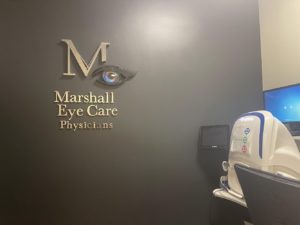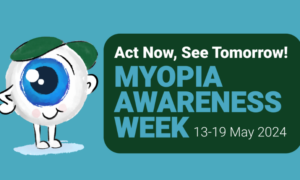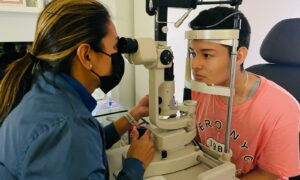September 15, 2022
By Jessica Marshall, OD
I always want people to leave my office feeling good about life — and their decision to see me. I don’t view this as a sales pitch but as a way to help.
I started working in the optical industry in New York City in the 1990s as an optical sales representative. This was before the internet disruption of optical sales, and I was able to make enough in commission to cover my college tuition. However, the pace of optical sales and school full-time was challenging to keep up, and instead of heading straight into optometry school, I became a public school teacher. In this role, I learned about how children’s eyesight can impact their learning. One year later, my passion for optometry had me once again back in optometry school at SUNY Optometry.
By 2007, I was looking for jobs as a new optometrist. I bounced around a few corporate positions and eventually took over a seven-day-a-week corporate sub-lease in New Jersey. I had spent many years in optical sales and realized that with the evolution of eye care leaning heavily toward internet sales, I didn’t want a practice based on commodities. I made a focused decision to bring glaucoma, AMD, and dry eyes into my office to differentiate my office from a refraction mill. Though I worked in corporate optometry for over a decade, I always treated my patients like it was a private practice and was able to make the jump into opening my own private practice in February 2022.
Learning Myopia Management
In 2019 while still at my corporate practice, I hired an associate fresh out of school. She was enamored by myopia management, and I gave her full ability to bring the sub-specialty into my practice. I sent her any children I thought would be good candidates, and she picked them up from there.
Whenever I had young myopes in my exam chair, I told their parents that some contact lenses and eye drops could help prevent their Rx from worsening. While there’s no way to go back and reverse the progression, it is best to intervene sooner than later. I would inform them that it’s worth coming back to sit with our specialist before spending any money on traditional glasses or contacts.
However, when that doctor left our practice, I had to learn the specialty myself, as we had quite a few patients in the program. Now, I personally have been doing myopia management for the last two years. Because I was getting really invested in myopia management during COVID-19, I took advantage of online CE classes, which have been great for me. Different lens labs have also been great resources, and I ordered various soft lens and orthokeratology fit sets.
Now that I have a few years of myopia management under my belt, I start by offering all patients lenses first — either OrthoK or multifocal contact lenses. I review the pros and cons of choosing a soft lens such as CooperVision’s MiSight 1 day versus an OrthoK lens. Typically, I try to have patients train on both and see if there is a preference one way or the other. I’ve found that even if I have a preference in treatment modality, the patients need to be able to work comfortably with the product. Otherwise, it ends up being a waste. I’ve noticed that OrthoK tends to be easier for patients with smaller eyes, and many kids are excited to have clear vision in the morning. I get most of my referrals for OrthoK, and I think that’s because of that excitement factor.
Teaching the Full Scope of Myopia Management
Having spent a year as a teacher, I’m very good at explaining complex topics in basic terms. I always go over things in a way that encompasses auditory, visual, and hands-on learners. I use an old eye model and explain eye stretching and how it can hurt the structures of the eyes. I also add that if an Rx stays under -4.00D, we have a much better chance at LASIK, avoiding nerve damage and retinal tears due to elongated eyes. In addition, keeping a lower Rx means that glasses are thinner, so they look and feel better than thick ones.
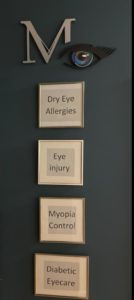
Dr. Marshall’s practice offers patients comprehensive eye care.
What I’ve found to be most helpful in conversations with parents is ensuring they understand what I’m trying to say. I avoid using medical terms without an explanation. Also, I’m a big proponent of making them feel good about whatever decision they make. I always want people to leave my office feeling good about life — and their decision to see me. I don’t view this as a sales pitch but as a way to help. I’m never trying to pressure parents into doing anything, but it is my job to let them know the options so they can never say their doctor didn’t tell them.
Here is an example of a conversation with a parent about myopia management:
“Your child is nearsighted. They cannot see well far away with naked eyes. The higher the Rx is, the longer their eyes are. The longer the eye is, the more easily it can get damaged. I then use the eye model and show it stretching. When we were young, we had no choice but to wear thick glasses and contacts. They make drops and special contact lenses that prevent kids’ prescriptions from getting worse. They’re really an amazing advancement in technology.
I advise scheduling an in-person consultation or FaceTime call for about 25 minutes so that I can go over this with you. I don’t charge for this — it’s just so I can make sure I have enough time to discuss each treatment option in depth and the risks associated with leaving myopia untreated.”
Getting More Practitioners on Board
Myopia management is an excellent addition to any office but requires a great deal of patient education. Hardly any of my patients hear the term “myopia management” for the first time and know what it means. I believe the specialty will gain significant traction as word of mouth grows. I think it’s time for individual doctors who are passionate about myopia management to carve out time to make real advancements in consumer education.
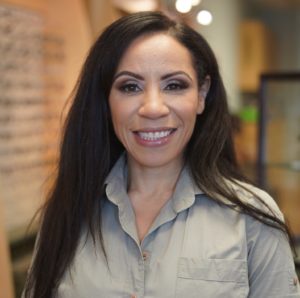 |
Dr. Jessica Marshall received her optometry degree from the State University of New York School of Optometry. She is licensed by the National Board of Examiners in Optometry and the states of New York and New Jersey. She holds additional certifications in controlled drug substances and NYS therapeutics. She is an active member of the American Optometric Association, the New Jersey State Optometric Association, National Optometric Association, Ocular Surface Society, the National Association of Professional Women, and the American Diabetes Association. Dr. Marshall treats dry eye, ocular allergies, and computer vision syndrome. She has successfully fit thousands of contact lenses, and her office is a leader in both multifocal and daily fit contact lenses. |


